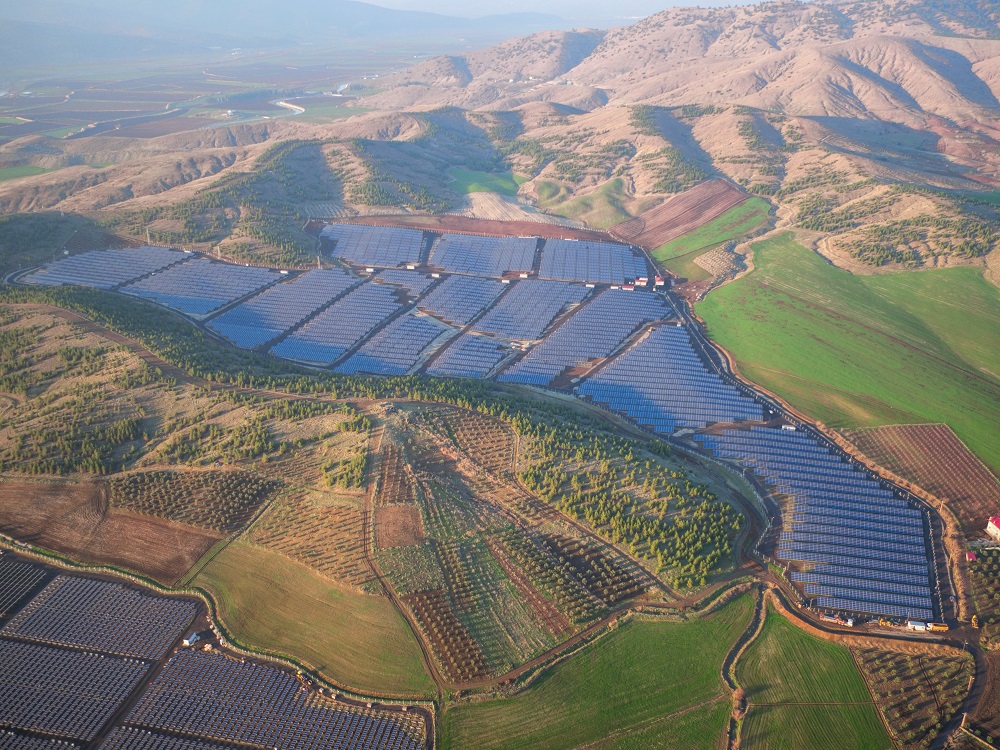Speaking at the Energy Markets Summit organized by Turkey's Energy Market Regulatory Authority (EPKD) on Tuesday, Turkish President Recep Tayyip Erdogan said the country was set to double its energy consumption by 2023, resulting in an energy investment need of around $120 billion. Renewable and nuclear energies will be part of this investment, Erdogan added.
Turkish Energy Minister Taner Y?ld?z said at the same meeting that his ministry is prioritizing renewable projects to decrease natural gas imports. In 2014, Turkey saved $850 million in energy imports due to the increase in the share of renewable energy, Yildiz stressed.
30% of 2023's electricity from renewables
Turkey's installed power capacity stands today at around 70 GW and the government aims to install an additional 110 GW by 2023. The AKP-led government's vision also aims for 90% of the country's electricity in 2023 to be equally provided by gas, coal and renewable energy plants (30% each). Nuclear energy will provide the remaining 10%. Currently, imported natural gas provides the main bulk of Turkey's electricity generation, around 40%.
Russia has granted Turkey a 6% discount for the gas it supplies it, however Turks continue to demand steeper discounts. The country has some of the lowest electricity and gas prices in Europe.
3 GW of PV by 2023
Turkeys Ministry of Energy and Natural Resources says that its target for 2023 includes a minimum 3 GW of solar PV installations. This amount corresponds to only 1.66% of the overall projected power capacity and is rather low for a country which according to its Renewable Energy General Directorate has a total annual insolation time of 2.737 hours (a total of 7.5 hours per day).
“The technical evaluations of the applications made to EPDK for the licensed generation of electricity in 2013 are currently being carried out, and photovoltaic plant licenses will be given to 600 MW of installed capacity at this first stage,” the ministry added. However, there are complaints from market sources that the permitting process is significantly slow and inefficient. The EPDK has announced that the agency will begin accepting applications for new solar PV licenses in April 2015.
The European Bank for Reconstruction and Redevelopment (EBRD) warns Turkey that while financial incentives and price guarantees introduced by recent laws have boosted investments in the renewable energy sector, some of these incentives, such as bonus payments for locally sourced content, may distort the market.
Furthermore, according to the latest statistics published by the ministry, the country added 6,303 MW of new capacity in 2014, of which wind and solar power plants comprise 14%, or about 882 MW. The report does not provide specific wind and solar PV installation data separately and it is believed that the vast majority of the added wind and solar capacity comes predominantly from wind. Hydro plants also added about 1,366 MW of 2014's new capacity.
Two months ago, for the first time, Turkey was able to meet 10% of its daily energy output from wind power for one day, Y?ld?z said at the EPKD event on Tuesday.
This content is protected by copyright and may not be reused. If you want to cooperate with us and would like to reuse some of our content, please contact: editors@pv-magazine.com.


By submitting this form you agree to pv magazine using your data for the purposes of publishing your comment.
Your personal data will only be disclosed or otherwise transmitted to third parties for the purposes of spam filtering or if this is necessary for technical maintenance of the website. Any other transfer to third parties will not take place unless this is justified on the basis of applicable data protection regulations or if pv magazine is legally obliged to do so.
You may revoke this consent at any time with effect for the future, in which case your personal data will be deleted immediately. Otherwise, your data will be deleted if pv magazine has processed your request or the purpose of data storage is fulfilled.
Further information on data privacy can be found in our Data Protection Policy.